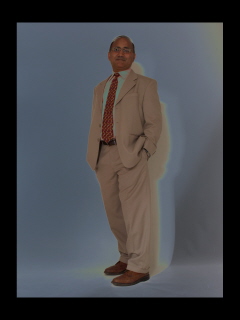Each of us carries within us idealized images and voices of our parents and grandparents. All good reformers while appealing to the masses reinforce our belief in the earlier generations. Only a few have the uncanny ability to tune into the ‘little voice’ of the masses and overcome the politics of difference across race, gender, religion and class. Gandhi had this gift, according to historians and biographers. Obama displays many characteristics of a first-rate reformer whose lifestory exemplifies why the ‘tired and hungry masses yearning to be free’ still flock to America. He inspires the You-Tube generation and those disengaged from the political process, yet continues to alienate a segment of the working class White men and women, a generation of folks best represented by his late mother and his grandparents.
A closer look at young Barry’s (his childhood name) multicultural upbringing in Hawaii and Indonesia indicates that his late mother, Stanley Ann Dunham, an idealistic single mother from Kansas and an only child of a depression era parents who was named after her father, had a big hand in shaping the budding personality of this would be president. While Obama may have inherited his Kenyan father’s oratory skills, who abandoned him at the tender age of two to attend Harvard before returning to his homeland, it was his mother who gave him the gift of language and tutored him English for fours hours in the morning before sending him off to school.
In the latest edition of his memoir, Obama reflects on the passing of his mother, “I think sometimes that had I known she would not survive her illness, I might have written a different book -- less a meditation on the absent parent, more a celebration of the one who was the single constant in my life...I know that she was the kindest, most generous spirit I have ever known, and that what is best in me I owe to her.” It is somewhat ironic that he finds himself in a political stalemate against a woman senator 5 years younger than his mother, who also grew up in the Midwest and came of age on the same idealism of the 60’s.
Obama’s mother and Hillary were generational cousins. The optimism that drove his mother in search of happiness to far reaches of the world also runs through Hillary’s narrative. Obama’s mother was a ‘New Deal peace-corps-loving liberal,’ a romantic and an anthropologist, who wrote more than a 1,000 page dissertation on Indonesian peasants. She tried to weave a patchwork of UN diversity in her family, twice married men from different cultures and then divorced. Hillary is a hard-knuckled progressive, who has worked for liberal causes all her life and has transformed herself into a tough and calculating politician who knows how to put up a good fight. Romantics and progressives are the two sides of the same liberal destiny, as Richard Shweder has described.
Young Barry’s extended family included his hard-working grandparents. His grandmother, who rose from a secretary to become the vice-president of a local bank, was his primary caregiver when his mother was away on cultural travels. His grandfather, who fought in WW-II, as Obama often points out in stump speeches, was a constant male figure during his adolescence and on several occasions reprimanded Barry for experimenting with drugs. His grandparents chose to live a modest existence in an apartment in Honolulu so that their grandchildren could attend the best private schools in Hawaii, something their mother could not afford on academic grants.
Given these humble beginnings, why has Obama been unable to connect with White working class voters? Some have speculated that the democratic primaries are caught up in a political generation gap, a deeper divide beneath the heated discussions about race and gender. Race will clearly trump gender if Obama seals the nomination. However, the gender gap in parallel with the generational gap represented by older women and working class White men and women will continue to shape the national debate, especially if Hillary supporters feel that the first viable female candidate has been denied her place in the sun.
Furthermore, while Obama has positioned himself as the first post-racial candidate, his longstanding association with his church has revealed a candidate who has been swimming in the undercurrents of Black liberation theology. The attacks by the conservative media outlets have reduced Obama’s multicultural identity to a caricatured Muslim middle name and amplified the rhetoric about his ‘radical blackness’. His memoir openly describes how he came to terms with the larger American society as a ‘black man’ in Hawaii. However, African American scholars claim that Obama’s ‘blackness’ is a social construction, at best a fuzzy label assigned to him because he is “not really black enough” and of mixed parentage. Given his biracial DNA and White working class upbringing, it would be unfortunate if his phenotypic ‘black persona’ becomes the common denominator for his national campaign, alienating other demographic and ethnic constituencies.
Obama needs to reconnect with the dreams of his working class White mother and grandparents and transmit their voices and images to the generation of folks Hillary has successfully courted. He must convey the urgency to voters about building the larger human family exemplified by his mother’s lifestory. This is a political and demographic necessity, which must include an assessment of Hillary Clinton as a vice presidential candidate, notwithstanding that his idealistic mother would have expected nothing less. Obama is in an unprecedented historical position to be anointed the first African American presidential nominee and the one who can also help break the highest glass ceiling for women. He must do everything in his power to rise above the ‘narcissism of small differences’ that pervades our political culture.





